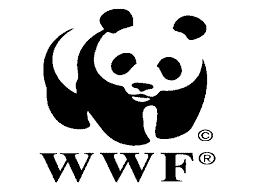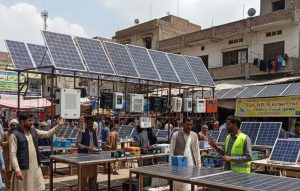ISLAMABAD – World Wide Fund for Nature-Pakistan (WWF-Pakistan) and Sui Northern Gas Pipelines Limited (SNGPL) signed a MoU to provide alternate means of energy to rural communities in cotton and rice producing areas of the country.
The formal agreement was signed by Hammad Naqi Khan, Director General WWF-Pakistan, and Amjad Latif, Chief Executive/ Managing Director, SNGPL at a ceremony held at SNGPL head office on Friday. The MoU forges a partnership of a year between the organisations, starting from July 2017 and ending in June 2019.
WWF-Pakistan with the financial support from SNGPL will implement the project titled Agro-Waste Community Enterprise for the provision of alternate energy for households and small businesses (AWARE) which will provide clean-burning cooking stoves fuelled by agro-waste as an alternate means of energy to rural communities.
The project will promote eco-friendly, alternative energy sources among rural households and small businesses through training, awareness raising and dissemination of 525 gasifiers units using agro-waste as fuel; a low-cost, simple, user friendly yet clean source of energy for cooking with great potential for wider dissemination among rural communities where different agro-wastes are available in abundant form.
Hammad Naqi Khan, while welcoming the opportunity of teaming up with SNGPL said, “With this partnership we have an opportunity to promote renewable energy technologies, particularly harnessing the true potential of agro-waste in order to ensure that the rural and less privileged areas of the country keep pace with the growing energy demands in a sustainable manner.
This project will not only improve rural livelihoods by ensuring access to affordable, reliable, sustainable and clean energy but will also help in promoting environmental stewardship and encouraging climate change mitigation.”
Speaking on the occasion, Amjad Latif, said, “We as an organisation are committed to the conservation and protection of the environment, to achieve this purpose we have worked with WWF-Pakistan in the past and will continue to work with the organisation in future. Recognising the measures being taken by WWF-Pakistan in tackling the catastrophic impacts of climate change, together we will promote activities to protect and preserve the environment—conservation is at the heart of SNGPL Corporate Social Responsibility (CSR) policy.”
Agricultural waste such as rice husk, cotton gin waste, and bagasse have the potential to generate energy, which otherwise becomes a problem for disposal. In the context of rural communities, which do not have access to energy, agro-wastes can be used as an energy source to reduce the dependence of households on fuelwood and meet their energy needs.
The use of agro-waste is an efficient fuel source compared to conventional methods, which burns rapidly and emits excessive smoke and particles causing indoor pollution and respiratory diseases. There is potential to replicate the use of agro-waste as alternate energy in both cotton and rice growing areas of Pakistan due to the availability of agro-waste from each crop. Replication potential exists in south Punjab and central Punjab, where cotton and rice processing mills are in abundance.-PR














